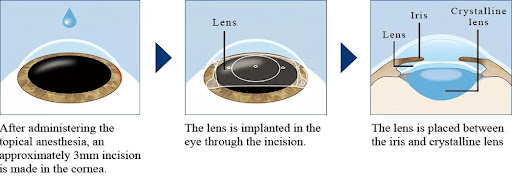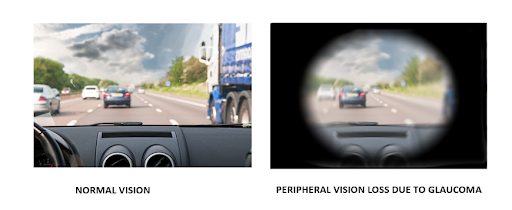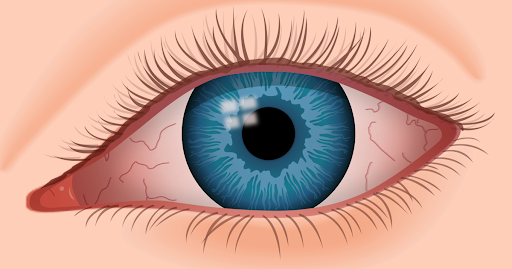Solar eclipse—a cosmic wonder—captivates us with its awe-inspiring beauty. However, amid the excitement, it is crucial to prioritize safety, particularly when it comes to our eyes. This comprehensive guide delves into the nuances of solar eclipse and eye safety, combining expert insights with practical advice from Eyeonce Eye Clinic’s well-renowned eye doctors Paik Dong Won and Jung Rae Som.
The Science Behind the Connection
During a solar eclipse, the moon positions itself between the Earth and the sun, casting a shadow that either partially or completely obscures the sun. While this cosmic ballet is a spectacle to behold, the intense solar radiation emitted during an eclipse can pose serious threats to our eyes.
Potential Risks to Vision
Staring directly at the sun, a seemingly harmless act during a solar eclipse unveils a hidden peril known as solar retinopathy. This condition emerges when the sun’s intense rays inflict damage upon the light-sensitive cells residing in the retina, the delicate tissue at the back of the eye responsible for transmitting visual signals to the brain.
Solar retinopathy represents a serious threat to vision due to the irreversible nature of the damage it causes. The affected light-sensitive cells, once harmed, do not regenerate or heal, leading to a permanent impairment of vision. The severity of the impairment can vary, ranging from mild blurriness to complete loss of central vision.
Preventing Eye Damage During a Solar Eclipse
Here are some ways you can prevent eye damage and ensure a safe experience during a solar eclipse:
- Use Certified Solar Viewing Glasses – Obtain solar viewing glasses with special-purpose solar filters that meet international safety standards. Ensure the glasses have ISO 12312-2 certification for adequate eye protection.
- Beware of Counterfeit Glasses – Before use, carefully inspect your solar viewing glasses for any scratches, punctures, or damages.
- No Sunglasses, Cameras, or Binoculars Alone – Regular sunglasses, cameras, and binoculars are not sufficient for solar viewing. Use solar filters specifically designed for cameras and binoculars, ensuring they meet safety standards.
- Create a Pinhole Projector – Craft a pinhole to indirectly view the solar eclipse. This method is a safe alternative for those without certified solar viewing glasses.
- Limit Direct Sun Exposure – Avoid prolonged exposure to the sun, even during an eclipse. Take breaks and give your eyes rest to reduce the risk of solar retinopathy.
- Consult your Eye Doctors – At Eyeonce Eye Clinic, our eye care professionals provide proper education to avoid triggering pre-existing eye conditions from the impact of solar eclipse.
By adhering to these precautions, you can relish the beauty of a solar eclipse while prioritizing the health and safety of your eyes.
Solar Eclipse-Related Conditions
Solar eclipses, if not observed with proper eye protection, can potentially lead to eye damage and contribute to certain eye diseases. Here are some eye conditions that may result from direct solar exposure during a solar eclipse.
- Solar Retinopathy – This condition occurs when the sun’s intense rays damage the light-sensitive cells in the retina. Solar retinopathy can lead to permanent vision impairment and is a significant risk during solar eclipses if proper eye protection is not utilized.
- Photokeratitis – Similar to sunburn on the skin, photokeratitis is the result of overexposure to ultraviolet (UV) rays. Symptoms include pain, redness, tearing, and a gritty feeling in the eyes. While this condition is often temporary, prolonged exposure can lead to more severe complications.
- Macular Degeneration – Prolonged exposure to harmful UV rays, such as those during a solar eclipse, may contribute to the development or progression of age-related macular degeneration (AMD). AMD affects the central part of the retina (macula) and can result in vision loss.
- Cataracts – UV radiation exposure is a known risk factor for cataracts, a condition where the eye’s natural lens becomes clouded. Direct exposure to the sun during a solar eclipse can contribute to the development of cataracts over time.
- Conjunctivitis (Eye Irritation) – The intense brightness of the sun during a solar eclipse can lead to eye irritation, commonly known as conjunctivitis or “pink eye.” Symptoms include redness, itching, and a gritty feeling in the eyes.
Adhering to recommended safety measures can significantly reduce the risk of these eye diseases during solar events. If you experience any symptoms of eye discomfort or changes in vision after a solar eclipse, seeking prompt medical attention, including consultation with Eyeonce Eye Clinic’s eye care professional, is essential for proper diagnosis and treatment.
Frequently Asked Questions (FAQs)
Yes. Solar eclipses can be harmful to your eyes if viewed without proper protection. This intense solar radiation emitted during an eclipse poses a risk of permanent damage to the light-sensitive cells in the retina.
Solar viewing glasses are equipped with special filters that block harmful solar radiation, including ultraviolet and infrared rays. These filters allow you to observe the eclipse safely by reducing the brightness to a comfortable and safe level for your eyes.
No, regular sunglasses do not provide sufficient protection during a solar eclipse. They do not have the necessary filters to block the harmful solar radiation. Only certified solar viewing glasses or other designated solar filters should be used for safe observation.
Conclusion
As you prepare for the next solar eclipse, consider taking a proactive step toward ensuring your eye health. Schedule an appointment with Eyeonce Eye Clinic for a comprehensive eye examination and personalized guidance on safe solar viewing practices. Protect your vision and let the experts at Eyeonce be your partners in preserving the beauty and health of your eyes. Book an appointment with them today!



